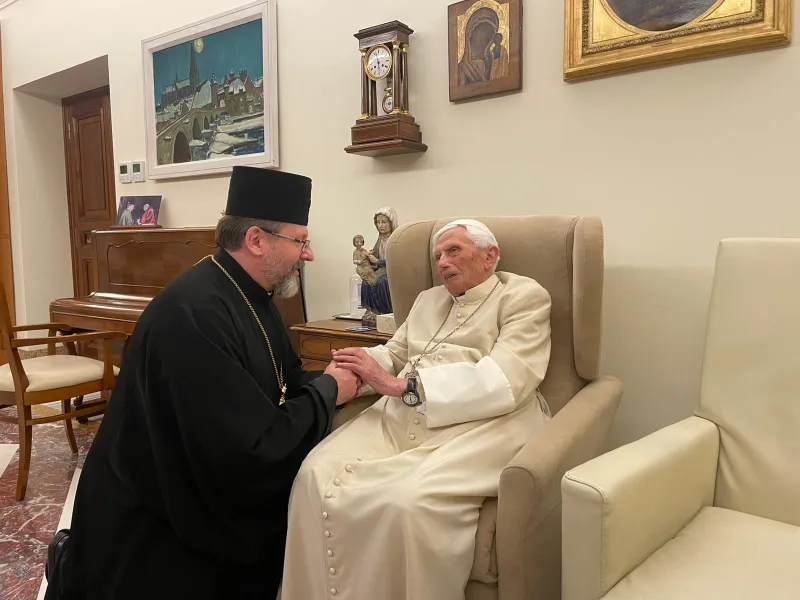
Vatican City, Dec 28, 2022 / 03:48 am (CNA).
The Vatican confirmed Wednesday that pope emeritus Benedict XVI has experienced a sudden decline in his health, but is stable and under medical care.
“I can confirm that in the last few hours there has been a worsening due to advancing age. The situation at the moment remains under control, constantly followed by doctors,” Holy See Press Office director, Matteo Bruni, told journalists Dec. 28.
Bruni added that Pope Francis went to visit the 95-year-old pope emeritus where he lives, in the Mater Ecclesiae Monastery in the Vatican, after his general audience on Wednesday morning.
At the end of his weekly public audience, Pope Francis had asked for prayers for Benedict XVI’s health.
“I ask to all of you a special prayer for the pope emeritus Benedict, who, in silence, is sustaining the Church,” he said.
“Remember him — he is very ill — asking the Lord to console him and to sustain him in this testimony of love for the Church until the end.”
In its statement, the Vatican said it joins Pope Francis “in praying for the pope emeritus.”
If you value the news and views Catholic World Report provides, please consider donating to support our efforts. Your contribution will help us continue to make CWR available to all readers worldwide for free, without a subscription. Thank you for your generosity!
Click here for more information on donating to CWR. Click here to sign up for our newsletter.




Leave a Reply